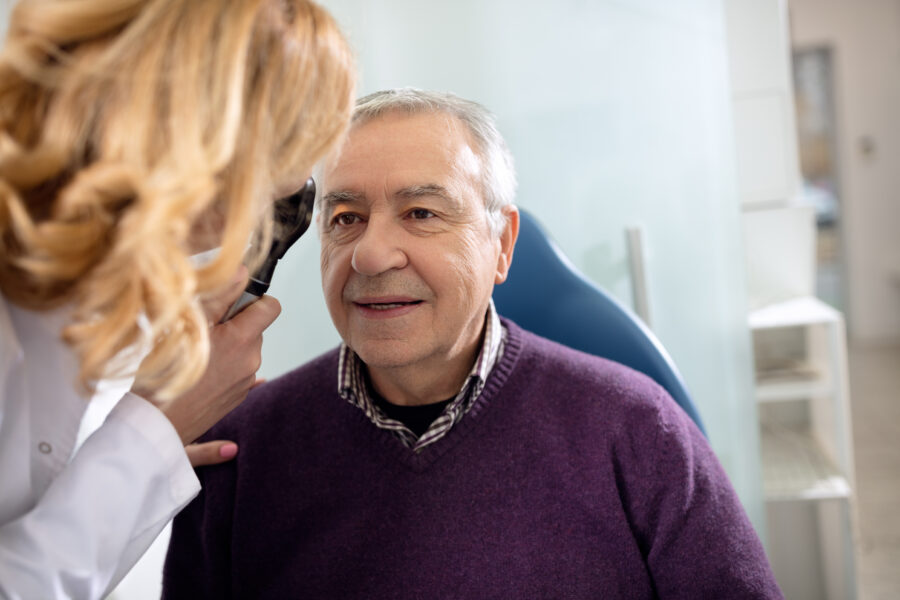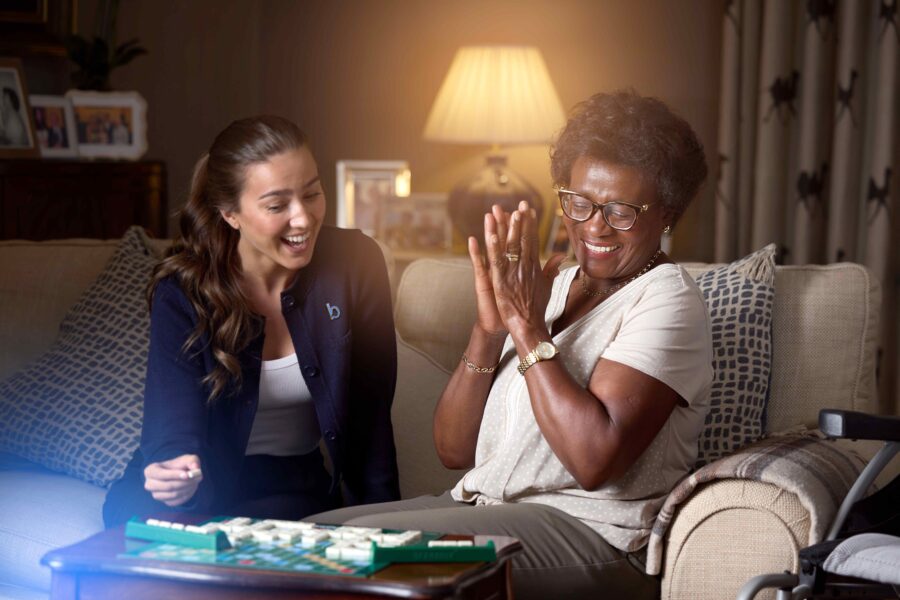Blog post
5 Reasons Why Clear Vision is Essential for Individuals with Dementia

Matthew Burford BSc(Hons) Optometry MCOptom - Domiciliary Optician and Professional Services Manager at OutsideClinic
3 minute read time
Have you ever stopped to think about how important clear vision is for someone with dementia?
For people with dementia, not being able to see clearly can cause confusion and potentially speed up cognitive decline. Good vision isn’t just about seeing, it's about understanding and connecting with the world around us.

Improved ability to process information and understand their surroundings
Clear vision allows individuals with dementia to better perceive and understand their surroundings. It helps them process visual information, recognise objects and navigate their environment, promoting cognitive engagement and mental stimulation.
Easier communication
Good vision enables individuals with dementia to better interpret non-verbal cues, such as facial expressions and gestures, which means more effective communication with caregivers, family members and peers. It helps maintain social connections and reduces feelings of isolation.
Reduces the risk of accidents and falls
Good vision reduces the risk of accidents and falls by allowing individuals to better detect obstacles, changes in terrain and potential hazards in their surroundings. It promotes their sense of independence and confidence in performing daily activities.
Improved ability to participate in activities
Good vision allows individuals with dementia to actively participate in various activities. They can enjoy books, puzzles, TV programmes and engage in stimulating visual experiences, promoting mental well-being and a sense of fulfilment.
Better quality of life
Maintaining good vision contributes to an overall better quality of life for individuals with dementia. It allows them to appreciate the beauty of their environment, enjoy visual stimuli and maintain a sense of connection to the world around them. It can positively impact their mood, cognition and overall sense of well-being.
How do I ensure my loved one with dementia gets the eye care they need?
Regular eye tests mean that we can identify and treat any sight issues, and therefore reduce the confusion and possibly slow down cognitive decline.
Here at OutsideClinic, we offer dementia-friendly eyes tests at home or in a care home, in a safe, familiar and comfortable environment.
Our Opticians are given specific training on Understanding Dementia, The Mental Capacity Act and Safeguarding.
We have longer appointments slots which allow us to do the test at a slower pace if needed.
And there is always the option to have a loved one or carer present during the test for added reassurance.

By Matthew Burford BSc(Hons) Optometry MCOptom - Domiciliary Optician and Professional Services Manager at OutsideClinic
Matthew graduated from Aston University in 2004 with a degree in Optometry.



